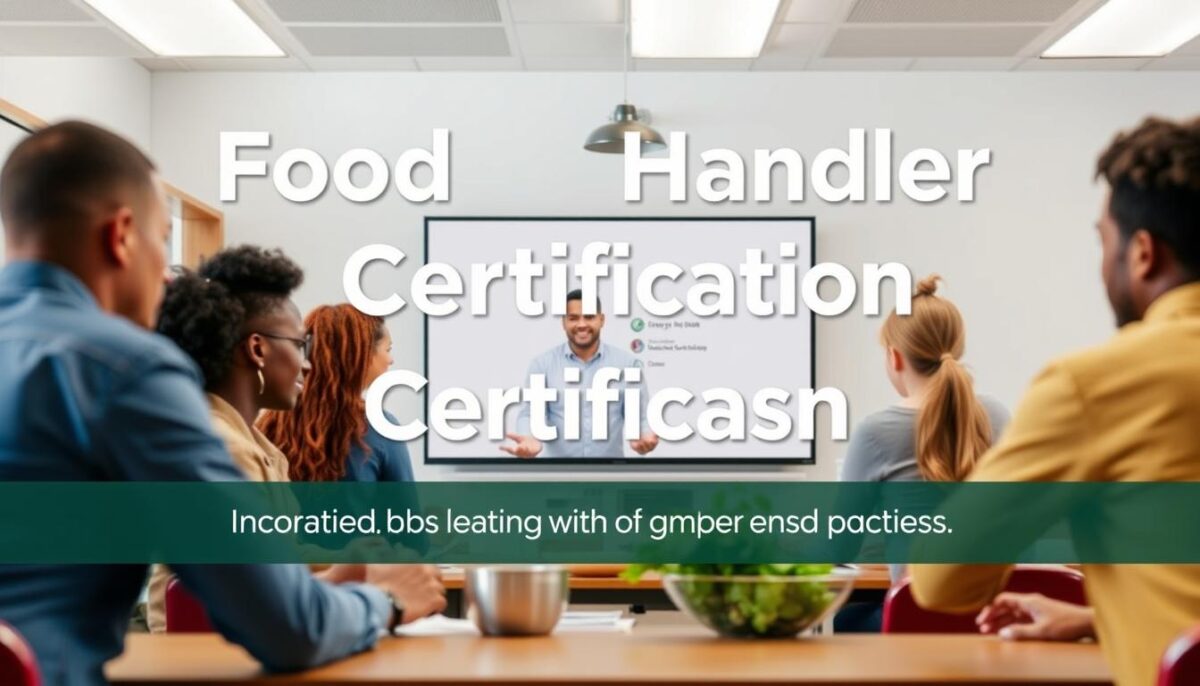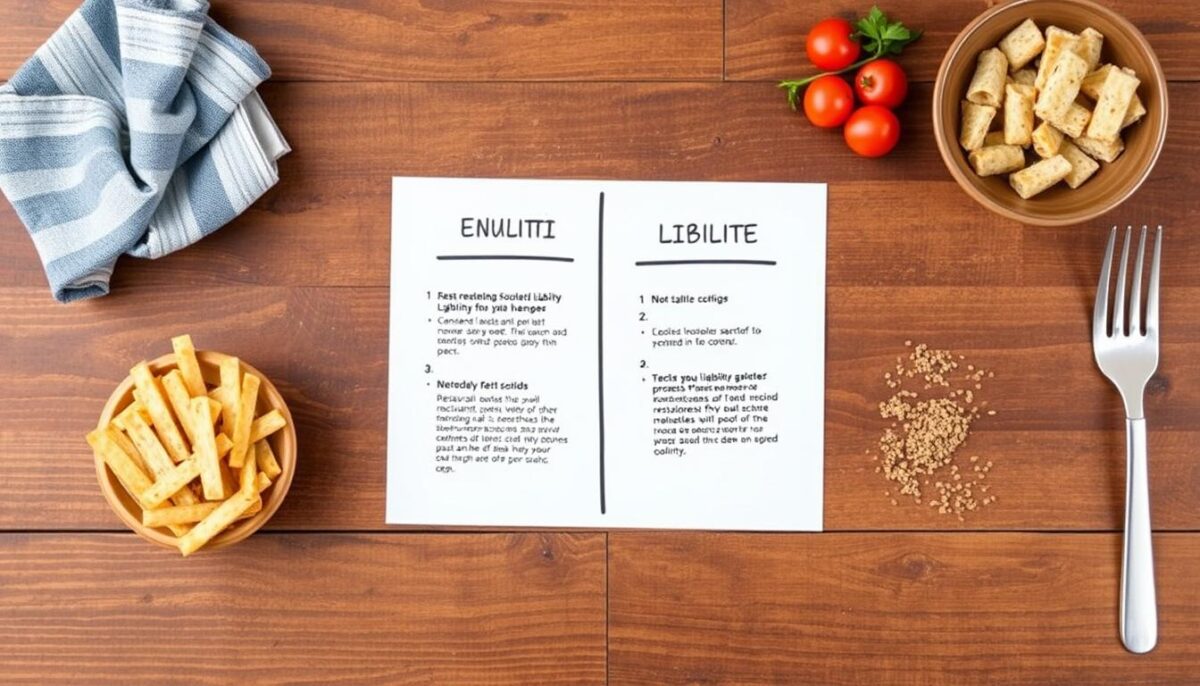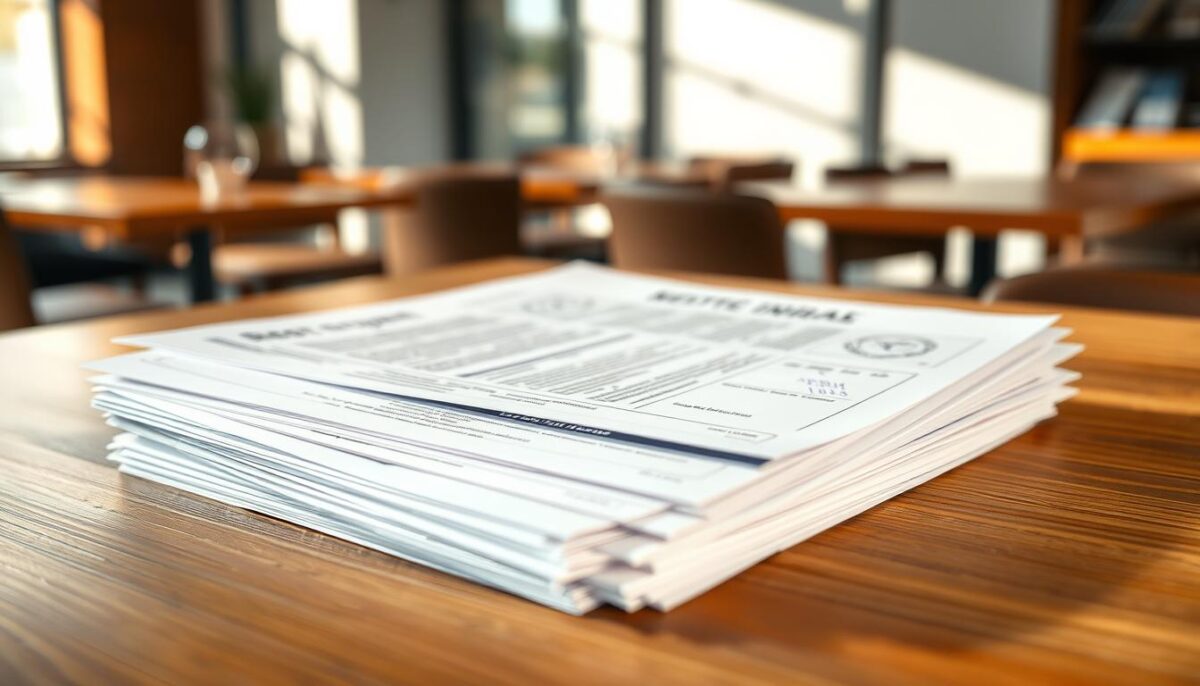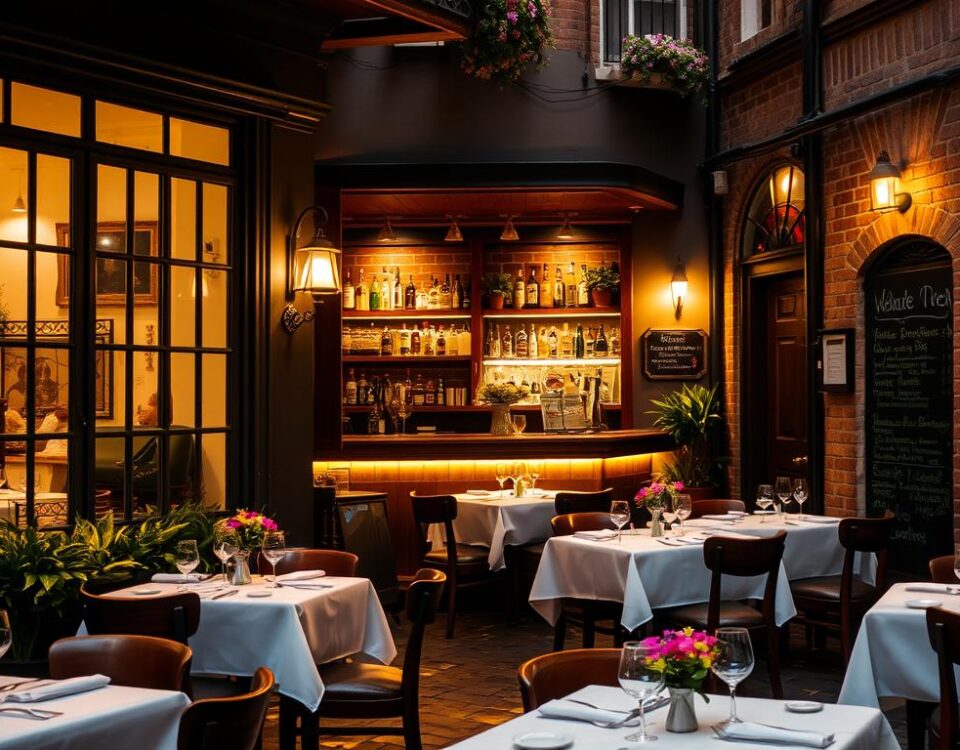
Ghost Kitchen Failure Stories—And What You Can Learn from Them
August 30, 2025
Restaurant Health Inspection Checklist: Pass in 60 Minutes
August 31, 2025I’ve seen it happen too many times – eager business owners ready to open their doors, only to have their dreams delayed or even destroyed by missing a single critical document.
The restaurant industry is notoriously challenging, with up to 80% of businesses struggling to survive past their first five years. A comprehensive checklist is essential for navigating the complex process of opening a restaurant.
Understanding the high stakes of proper documentation can be the difference between opening on schedule and facing costly delays. In this guide, I’ll walk you through every document you need to ensure a smooth restaurant launch.
Key Takeaways
- A comprehensive checklist is crucial for a successful restaurant launch.
- Missing documents can lead to costly delays.
- Proper documentation is key to navigating the complex opening process.
- Different documents have varying processing times.
- A well-planned launch ensures a smooth opening.
The High Stakes of Restaurant Documentation
In the highly regulated world of restaurants, having the right paperwork in place is crucial for a smooth launch. Proper documentation serves as the foundation for your restaurant’s legal operation and long-term success. Without it, you risk facing hefty fines, immediate closure, or even legal action that could end your restaurant dreams before they begin.
Why Proper Documentation Can Make or Break Your Restaurant
The restaurant industry is heavily regulated for good reason—customer safety and public health depend on restaurants following proper protocols. As a restaurant owner, it’s essential to understand that different municipalities have different requirements, and what worked for one restaurant may not work for yours. I’ve witnessed restaurant owners who had to postpone their grand opening day because they failed to secure their food service establishment permit in time.
One of the most critical tasks when opening a restaurant is creating a timeline for document acquisition that accounts for processing delays. Make sure you understand the specific needs of your business and the area you’re operating in. The work involved in securing proper documentation may seem overwhelming, but it’s a necessary part of the restaurant business.
Real-Life Horror Stories: When Missing Paperwork Derailed Opening Day
I’ve seen restaurants lose tens of thousands of dollars in wasted food, idle staff wages, and missed revenue due to documentation oversights.
“The most successful restaurant owners find a way to tackle documentation methodically, treating it as an essential part of their business strategy rather than a bureaucratic nuisance.”
Customers today expect restaurants to operate with the highest standards ofsafetyand compliance—failing to meet these expectations can damage your reputation before you even serve your first meal.
To avoid such pitfalls, it’s crucial to prioritize documentation from the outset. By doing so, you’ll not only ensure compliance with regulations but also set your restaurant up for long-term success in a competitive industry.
Essential Business Formation Documents
A well-prepared restaurant owner understands the importance of having comprehensive business formation documents. These documents are the foundation upon which your business is built, affecting everything from taxation to liability. When you’re opening a restaurant, it’s crucial to get these documents in order to ensure a smooth launch and ongoing operations.
Business Entity Registration Papers
When opening a restaurant, you must first decide on your business structure—whether it’s a sole proprietorship, partnership, LLC, or corporation. Your business entity registration papers establish your restaurant as a legal entity and typically include articles of incorporation or organization, depending on your chosen structure. To register your restaurant business, you can

.
Federal and State Tax ID Numbers
Federal and state tax ID numbers are essential for hiring employees, opening business bank accounts, and paying taxes. Without these numbers, you can’t legally operate your restaurant. Obtaining a tax ID number is a critical step in the business formation process, and it’s used to identify your business for tax purposes.
Business Bank Account Documentation
A business bank account is crucial for separating your personal and business finances, which is not only good accounting practice but also provides liability protection. By keeping your business transactions separate, you can more easily track your restaurant’s expenses and income, making it easier to manage your finances effectively.
Having all your business formation documents organized and accessible makes restaurant management much more straightforward. It also helps in the menu planning process, as you can align your menu with your business structure and financial projections to ensure profitability. Moreover, proper business documentation is essential for managing equipment purchases and leases, potentially qualifying for tax benefits.
Your restaurant checklist should include a section dedicated to business formation documents, as these are often the first items needed in the opening process. Regulations regarding business formation vary by state and locality, so it’s essential to research the specific requirements for your area to ensure compliance.
Critical Permits and Licenses
The journey to opening a successful restaurant involves navigating a complex web of permits and licenses. As a crucial part of the launch process, securing these documents ensures that your restaurant operates legally and safely.
Food Service Establishment Permit
A Food Service Establishment Permit is non-negotiable for any restaurant. Without it, you cannot legally serve food to customers, regardless of how ready your kitchen equipment and staff might be. The application process for this permit often requires detailed floor plans, equipment specifications, and food safety protocols.

Liquor License Requirements
Liquor license requirements vary dramatically by state and even by county, with some areas having quota systems that can make obtaining a license extremely difficult or expensive. Understanding these requirements is crucial for planning your restaurant’s beverage service.

Certificate of Occupancy
Your Certificate of Occupancy confirms that your restaurant building is safe for occupancy and complies with all building codes. This is typically issued after passing inspections for electrical, plumbing, and structural safety.
Sign Permits and Exterior Modifications Approval
Sign permits and exterior modification approvals may seem minor, but many restaurants have faced delays because they overlooked these requirements. Ensuring compliance with local regulations regarding signage and exterior changes is essential.
Starting the permit application process at least 3-6 months before your planned opening date is recommended to account for processing times and potential issues. Proper licensing not only ensures legal compliance but also becomes a marketing advantage as customers increasingly prioritize food safety.
Health and Safety Compliance Documents
The importance of health and safety compliance documents in the restaurant industry cannot be emphasized enough. These documents are not just regulatory requirements; they are crucial for ensuring the well-being of your customers and staff, as well as protecting your business from potential legal and reputational risks.
Health Department Inspection Certificates
Health Department Inspection Certificates are essential documents that verify your restaurant meets all local health code requirements for food preparation, storage, and service. These certificates are typically issued after a thorough inspection of your premises, during which health officials assess factors such as food handling practices, cleanliness, and waste management.
Food Handler Certification Requirements
Food Handler Certification is another critical aspect of health and safety compliance. This certification ensures that your staff understands and implements proper food safety protocols, including temperature control, cross-contamination prevention, and personal hygiene. When opening a restaurant, you’ll need to demonstrate that your staff has completed the required food safety training programs, which vary by location.

Fire Safety Inspection Documentation
Fire Safety Inspection Documentation is equally important, as it confirms that your restaurant has proper emergency exits, fire suppression systems, and evacuation procedures in place. Regular fire safety inspections help identify potential hazards and ensure compliance with local fire codes.
Maintaining health and safety compliance is an ongoing process, not a one-time task during your restaurant’s opening. Regular inspections and updates to your documentation are necessary to ensure continued compliance and avoid any potential penalties or reputational damage.
Key aspects of health and safety compliance include:
- Ensuring equipment is properly maintained and cleaned.
- Implementing rigorous cleaning schedules and procedures.
- Training staff on proper food handling and safety protocols.
- Maintaining accurate records of health and safety inspections.
- Complying with regulations regarding ingredients sourcing and storage.
By prioritizing health and safety compliance, you not only protect your customers and staff but also enhance your restaurant’s reputation and contribute to its long-term success.
Your Complete Restaurant Launch Document Checklist
As a restaurant owner, you’ll need to navigate a complex web of documents to ensure your establishment is ready for launch. A comprehensive document checklist is essential for a smooth opening day.

Pre-Launch Documentation Timeline
Creating a well-organized pre-launch documentation timeline is crucial. Some permits and licenses can take months to process, so it’s recommended to work backward from your desired opening day. This timeline will help you stay on track and ensure that all necessary documents are in order.
By assigning specific tasks to team members based on their roles, you can efficiently manage the documentation process. This approach not only streamlines tasks but also ensures that everyone is aware of their responsibilities.
Document Organization System
Your document organization system should make it easy to access important paperwork quickly, whether for inspections or your own reference. A well-organized system is key to maintaining efficiency in your restaurant’s operations.
A combination of digital and physical document management works best for most restaurant owners. This hybrid approach allows for the benefits of digital storage, such as cloud backup and easy sharing, while also having physical copies for critical documents.
Digital vs. Physical Document Management
Modern POS systems often include document storage features that can help you keep track of important paperwork and integrate it with your daily operations. Restaurant management software can also streamline many tasks related to documentation, from employee certifications to inventory tracking.
When deciding between digital and physical document management, consider the advantages of each. Digital document management systems offer cloud backup, easy sharing with team members, and integration with other restaurant systems. On the other hand, physical documents should be stored in a fireproof, waterproof container and organized in a way that makes sense for your restaurant’s operations.
To maximize efficiency, I recommend creating a master list of all required documents, their status, renewal dates, and the person responsible for maintaining them. Regular audit procedures should also be included in your guide to documentation to ensure all paperwork remains current and compliant.
By following this comprehensive restaurant launch document checklist, you’ll be well-prepared for a successful opening day. Remember, the key to a smooth launch is a well-organized document management system that integrates with your overall restaurant operations.
Insurance and Liability Paperwork
One of the most crucial steps in opening a restaurant is securing the right insurance and liability paperwork. As a restaurant owner, you’ll need to navigate the complex world of insurance to protect your business from various risks. I always emphasize that insurance and liability paperwork is not an area where new restaurant owners should cut corners or try to save costs.
General Liability Insurance Documentation
General liability insurance protects your restaurant business from claims involving bodily injuries, property damage, and other incidents that could occur on your premises. When searching for restaurant liability insurance providers, it’s essential to compare different policies and choose one that covers your specific needs.

Workers’ Compensation Insurance
Workers’ compensation insurance is not just a legal requirement in most states—it protects both your business and your employees in case of work-related injuries or illnesses. This coverage is vital for maintaining a safe and healthy work environment, which is a top priority in the restaurant industry.
Property Insurance Requirements
Property insurance requirements vary based on whether you own or lease your restaurant space, but this coverage is essential for protecting your investment in equipment, inventory, and the building itself. As part of your business plan and financial projections, you should factor in the costs associated with property insurance to ensure you’re adequately prepared for any potential risks.
In the restaurant business, safety and health are paramount. Insurance costs should be considered part of your operational expenses, and many restaurants face higher insurance premiums due to safety concerns specific to food service, such as fire risks and foodborne illness potential. When opening a restaurant, I recommend working with an insurance broker who specializes in the restaurant industry to ensure you have appropriate coverage. Your insurance documentation should be reviewed annually to ensure it still meets your restaurant’s needs as your business grows and changes.
Employment and Staffing Documentation
I’ve seen how comprehensive employment and staffing documentation can transform a restaurant’s operational efficiency and compliance posture. Proper documentation is not just about avoiding legal issues; it’s about creating a professional and productive work environment.
Employee Handbook and Policies
Your employee handbook and policies document should clearly outline expectations, safety procedures, customer service standards, and other important aspects of working at your restaurant. This document serves as a guide for both employees and management, ensuring consistency in operations and customer experience.
I-9 Forms and Work Eligibility Verification
I-9 forms and work eligibility verification are federal requirements that verify your employees are legally authorized to work in the United States. Failure to maintain these documents can result in severe penalties. Ensuring compliance with these regulations is crucial for avoiding legal complications.
Payroll and Tax Withholding Documentation
Payroll and tax withholding documentation ensures you’re properly calculating wages, tips, and tax withholdings for all restaurant staff. Utilizing restaurant management software can streamline payroll processing, reducing the risk of errors and ensuring compliance with tax laws.
Efficiency in staffing processes starts with good documentation that clearly defines roles, responsibilities, and procedures. When opening a restaurant, creating standardized onboarding documentation helps ensure all new hires receive consistent training. Regular audits of employment documentation are essential for maintaining compliance with changing regulations.
By focusing on comprehensive employment and staffing documentation, you not only ensure legal compliance but also enhance the overall efficiency and professionalism of your restaurant’s workforce.
Vendor and Supplier Contracts
Vendor and supplier contracts are the backbone of your restaurant’s daily operations, ensuring consistent access to the food, equipment, and services you need to operate smoothly.
Establishing strong relationships with your vendors is crucial, and this begins with comprehensive contracts that outline the terms of your agreements. Whether you’re sourcing ingredients, leasing kitchen equipment, or contracting service providers, having clear and detailed contracts in place protects your restaurant’s interests.
Food Supplier Agreements
Food supplier agreements are vital for maintaining a consistent supply of high-quality ingredients. These agreements should clearly outline pricing, delivery schedules, quality standards, and procedures for handling issues like shortages or quality problems. By having these details in writing, you can avoid misunderstandings and ensure that your restaurant always has the necessary ingredients on hand.
Equipment Lease Documentation
Equipment lease documentation is another critical aspect of your vendor contracts. When renting or leasing kitchen equipment, POS systems, or other essential items, it’s essential to have contracts that protect your restaurant’s interests. This includes understanding the terms of the lease, maintenance responsibilities, and any penalties for early termination.
Service Provider Contracts
Service provider contracts cover a range of essential services, from linen services to waste management and cleaning companies. These contracts should outline the scope of work, service standards, and response times. By having robust contracts in place, you can ensure that your restaurant’s daily operations run smoothly and that you’re prepared for any issues that may arise.
To effectively manage your vendor and supplier contracts, it’s essential to have a system in place for organizing and tracking all vendor contracts, including renewal dates and key contact information. This is where a comprehensive restaurant checklist comes into play, helping you stay on top of your contractual obligations and ensuring that your restaurant remains compliant with all agreements.
By prioritizing your vendor and supplier contracts, you can establish a solid foundation for your restaurant’s success, ensuring that you have the necessary resources to deliver high-quality food and service to your customers.
Financial and Accounting Records
As a restaurateur, maintaining meticulous financial and accounting records is crucial for long-term success. Effective financial management enables you to secure financing, manage cash flow, and eventually prove your restaurant’s value if you decide to sell.
Business Plan and Financial Projections
Your business plan and financial projections document should include detailed market analysis, menu pricing strategy, and realistic revenue forecasts based on your restaurant’s capacity and location. This comprehensive plan serves as a roadmap for your business, helping you navigate financial challenges and make informed decisions.
Startup Cost Documentation
Startup cost documentation is essential for tracking every expense involved in opening your restaurant, from lease deposits to kitchen equipment to initial inventory. Accurate records of these costs are vital for understanding your financial obligations and managing your budget effectively.
Loan and Financing Agreements
Loan and financing agreements must be carefully reviewed and maintained, as they outline your repayment obligations and any restrictions on how you operate your business. Understanding these agreements is crucial for maintaining a healthy financial status and avoiding potential pitfalls.
A robust POS system that integrates with your accounting software can streamline financial record-keeping and provide valuable data on menu performance. Regular review of financial documents helps identify trends, control costs, and make informed business decisions. Moreover, maintaining organized tax documentation and inventory valuation records is essential for your restaurant’s financial health and compliance with tax obligations.
Property and Lease Documentation
Property and lease documentation form the backbone of your restaurant’s physical presence and financial stability. As a restaurateur, it’s crucial to understand the intricacies of these documents to ensure a smooth operation and avoid potential pitfalls.

Commercial Lease Agreement Essentials
When it comes to leasing a property for your restaurant, the commercial lease agreement is a critical document that outlines the terms and conditions of your tenancy. Key elements to focus on include:
- Term length and renewal options: Understanding the duration of your lease and the process for renewal is vital for long-term planning.
- Rent amount and escalation clauses: Be aware of how your rent is calculated and any potential increases.
- Maintenance responsibilities: Clearly define who is responsible for maintaining different aspects of the property.
- Restrictions on property use or modifications: Ensure that the lease allows for the type of restaurant business you intend to operate and any necessary modifications.
Property Insurance Requirements
Property insurance is another crucial aspect of your lease agreement, protecting both you and the property owner from potential damages. It’s essential to understand:
- Types of damages covered: This typically includes damages from fire, water, natural disasters, and other hazards.
- Responsibilities for maintaining safety features: Your lease should outline responsibilities for fire suppression systems, emergency exits, and other critical safety features.
- Property tax implications: Understanding how your lease affects property tax is important for accurate financial planning.
By carefully reviewing and understanding your property and lease documentation, you can ensure that your restaurant is well-positioned for success and protected from potential risks.
Technology and POS System Documentation
I’ve seen firsthand how a restaurant’s technology infrastructure can impact its overall efficiency. A well-documented POS system is crucial for streamlining operations, and it’s an aspect that can make or break a restaurant’s success.
POS System Contracts and Setup
When it comes to POS system contracts and setup, documentation is key. It’s essential to clearly outline costs, support terms, training provisions, and hardware warranty information. This ensures that you’re prepared for any issues that may arise during the critical opening period.
Key components to document:
- Contract terms and conditions
- Setup and configuration details
- Training materials for staff
- Warranty and support information
Online Ordering and Reservation System Documentation
Your restaurant’s online ordering and reservation system documentation should include setup instructions, troubleshooting guides, and integration details with your POS system. This ensures seamless operations and minimizes errors.
Important aspects to consider:
- Integration with POS system
- Setup and configuration
- Troubleshooting common issues
- Reservation management procedures
By prioritizing technology and POS system documentation, you can ensure that your restaurant runs smoothly and efficiently. This includes maintaining accurate records of equipment, software, and service agreements, as well as having a comprehensive restaurant checklist in place.
Conclusion: Building Your Document Safety Net
A successful restaurant launch is built on a foundation of thorough preparation and meticulous documentation. As we’ve explored throughout this guide, having the right documents in place is crucial for a smooth opening and ongoing operations.
The safety of your customers and staff is paramount, and maintaining current and compliant documentation is not just a legal requirement but an ethical responsibility. Your restaurant’s opening day success hinges on having all the necessary documents in hand, as missing even one critical permit can derail months of preparation and investment.
Creating a master checklist and assigning specific team members to be responsible for different documentation areas can help ensure that your restaurant stays on track. The most successful restaurant owners integrate documentation maintenance into their regular operational tasks, rather than treating it as a separate burden.
Customer trust is built on the foundation of a properly documented and compliant restaurant. While customers may never see your permits and licenses, they benefit from the standards they ensure. In my experience, documentation problems compound over time, so addressing them promptly is essential.
The day-to-day operation of your restaurant will be smoother when you have systems in place for organizing, updating, and accessing your critical documents. Your guide to documentation should evolve as your restaurant grows and as regulations change, making it a dynamic process rather than a static one.
I encourage you to view your documentation not just as a regulatory requirement but as a way to protect the dream and investment you’ve put into your restaurant. The work you put into proper documentation pays dividends in smoother operations, fewer emergencies, and greater peace of mind as you focus on delighting your customers.
At the end of the day, having your documentation in perfect order allows you to focus on what you’re passionate about—creating amazing food and memorable experiences for your customers. By building a robust document safety net, you’ll be well on your way to a successful restaurant launch and a thriving business.
FAQ
What are the most critical documents needed to open a restaurant?
The most critical documents include business entity registration papers, federal and state tax ID numbers, food service establishment permits, liquor licenses, and health department inspection certificates.
How do I ensure my restaurant is compliant with health and safety regulations?
To ensure compliance, obtain a food service establishment permit, maintain a clean and safe kitchen environment, and ensure all staff have the required food handler certifications. Regular health department inspections will also help you stay on track.
What kind of insurance do I need for my restaurant?
You’ll need general liability insurance, workers’ compensation insurance, and property insurance to protect your business from various risks, including customer injuries, employee accidents, and property damage.
How do I manage my restaurant’s finances effectively?
To manage your finances effectively, maintain accurate financial records, including business plan and financial projections, startup cost documentation, and loan and financing agreements. Implementing a robust accounting system will also help you stay on top of your finances.
What are the benefits of having a digital document management system?
A digital document management system helps you store, organize, and access your documents efficiently, reducing the risk of lost or misplaced paperwork. It also enables you to make updates and revisions easily, ensuring your documents are always current.
How do I ensure my staff is properly trained on food safety and handling?
To ensure your staff is properly trained, provide them with food handler certification training, and maintain records of their certification. Regular training sessions and kitchen inspections will also help reinforce safe food handling practices.
What are the key elements of a commercial lease agreement?
A commercial lease agreement should include essential terms such as rent, lease duration, and property use restrictions. It’s also crucial to understand your obligations regarding property maintenance, repairs, and insurance requirements.
How do I choose the right POS system for my restaurant?
When choosing a POS system, consider factors such as ease of use, compatibility with your existing systems, and the ability to track sales, inventory, and customer data. Ensure the system is also secure and compliant with industry standards.



